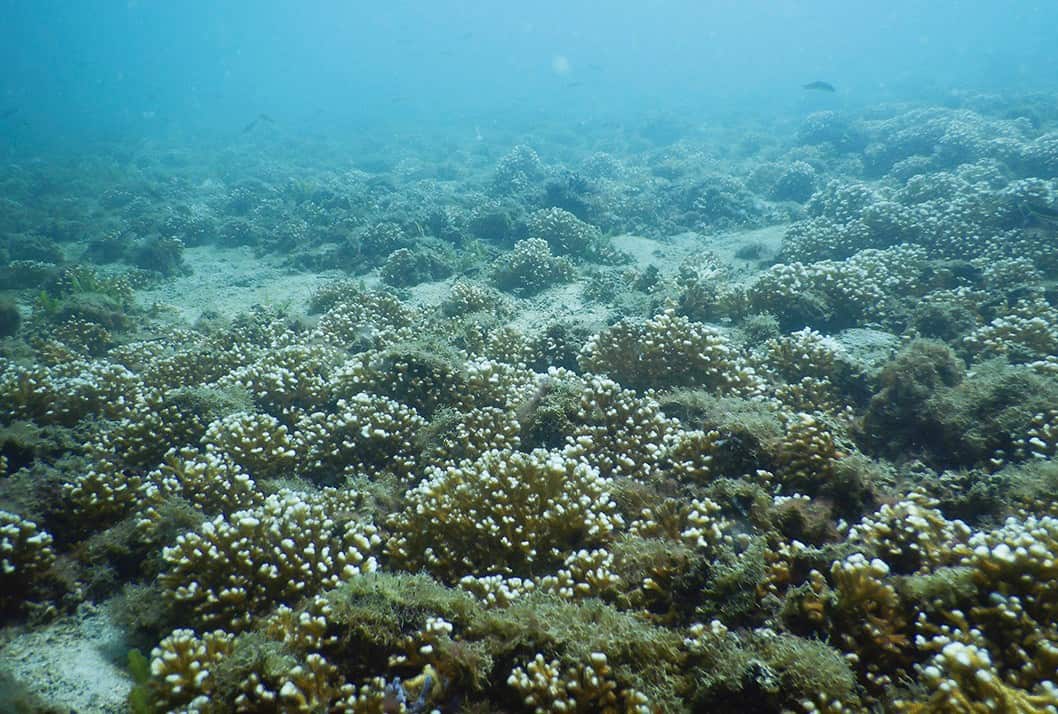The Jícaro reef, located in Culebra Bay, Guanacaste, has died. According to records from the Center for Marine Science and Limnology Research (Cimar-UCR), which has been monitoring the area since the 1990s, its decline is due to a combination of factors such as increasing water temperature, mass tourism, and pollution caused by urban growth.
The El Niño phenomenon has led to a significant rise in sea temperature. According to experts, it reached 33°C, exceeding the tolerable thermal threshold for corals, which prefer temperatures close to 28°C. In just a few weeks of high and sustained temperatures, the reef at Jícaro beach experienced total bleaching in August.
On the other hand, Bahía Culebra is situated on the Papagayo Peninsula, a locale characterized by massive tourist visitation, luxury hotels, and construction everywhere. The boats used by visitors with significant purchasing power, as well as jet skis and other activities they engage in, exert considerable pressure on the reefs.
The overload of tourists, sometimes numbering in the hundreds simultaneously swimming at the reef’s surface, causes enormous stress on the ecosystem. The reef has been affected by direct visitor interactions, such as anchor use and physical contact with corals, as well as disturbances to the marine environment.
Urban growth in the area has led to an increase in particulate matter from sewage, contributing to the proliferation of red tides. This undoubtedly impacts corals directly and harms the marine biodiversity of the region.
CIMAR hopes to revive this coral using a strategy successfully employed in other areas. Coral gardening has effectively revitalized reefs in various locations along the Pacific coast. The program has been implemented with the assistance of the Ministry of Environment and Energy, Raising Coral, Peninsula Papagayo, and German cooperation.
While coral restoration efforts offer hope, they must be complemented by broader conservation measures. Regulating urban expansion, promoting responsible tourism, and enforcing environmental protections are essential to safeguarding marine biodiversity. Only by addressing these challenges collectively can Costa Rica ensure a future for its coral reefs.






